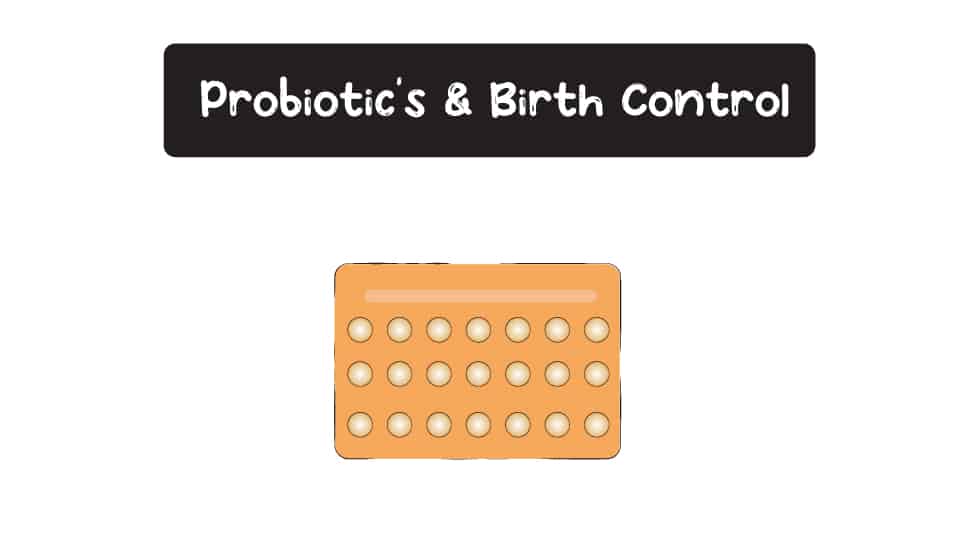Can You Take Probiotics With Birth Control Pills?

Birth control pills, also known as oral contraceptive pills, are medications containing hormones that are taken daily to prevent pregnancy by inhibiting ovulation and altering the uterine and cervical environment.
Probiotics are beneficial live microorganisms, such as bacteria and yeasts, that can provide health benefits when consumed, particularly for improving gut and overall well-being.
It is safe to take probiotics with birth control pills together because probiotics are not known to interfere with the function of birth control pills, and there are no reported risks of taking them both at the same time.
What Are Birth Control Pills?
Birth control pills are oral contraceptives containing hormones to prevent pregnancy, and they are safe and effective when used correctly. The hormones contained in birth control pills, namely estrogen and progestin, work together to prevent pregnancy by suppressing ovulation and altering the uterine and cervical environment.
The uterine environment refers to the conditions within the uterus that support pregnancy, while the cervical environment pertains to the state of the cervix, including its mucus consistency, which affects fertility and can be modified by hormonal changes. They work by changing the body's hormonal balance. The pills are taken daily, and there are various types with different hormone combinations. Birth control pills can lead to side effects like spotting and weight changes due to their impact on hormonal balance, which can affect the uterine lining and bleeding patterns, as well as metabolism and fluid retention.
Is It Safe To Take Probiotics With Birth Control Pills?
Yes, probiotics are safe to take with birth control pills, as they do not affect the effectiveness or function of the birth control pill, and there is no evidence of interactions between the two. There is no evidence suggesting that probiotics interfere with the effectiveness of birth control pills. Introducing healthy bacteria through probiotics while on birth control can help to restore a balanced microflora and provide support according to a 2022 study authored by Z Mei.
Do Birth Control Pills Affect Gut Health?
The impact of birth control pills on gut health is still being explored, with some indicating slight changes in gut microbiota diversity due to combined hormonal contraceptives and potential influences on metabolic pathways.
The use of combined hormonal contraceptives (CHCs), such as birth control pills, is associated with slight alterations in the diversity and composition of gut microbiota in healthy pre-menopausal women. CHC usage leads to a minor decrease in gut microbiota diversity and changes in the abundance of certain bacterial groups according to a 2021 study authored by J Mihajlovic.
The use of oral contraceptives does not significantly impact the diversity or composition of the gut microbiome; however, it does influence the abundance of specific metabolic pathways related to peptidoglycan, amino acid biosynthesis, and NAD salvage according to a 2022 study authored by X Hua.
The vaginal microbiome's balance can be disrupted by various factors including hormonal changes due to contraceptives according to a 2023 study authored by C Bakus. Mechanical contraceptives like spermicides and diaphragms can lead to vaginal dysbiosis, while the effects of Copper T intrauterine devices (Cu-IUDs) and hormonal contraceptives on the vaginal microbiome are complex and contradictory.
Can You Take Vitamin C And Birth Control Together?
Yes, it is safe and beneficial to take both vitamin c and birth control together according to research. Vitamin C is an essential water-soluble nutrient that plays a crucial role in immune function, collagen synthesis, and antioxidant protection. Both vitamin C and the birth control pill are initially metabolized by the same enzymes in the body. There is no significant concern about pregnancy prevention with vitamin c and birth control together as long as birth control pills are taken correctly and consistently.
Dr. Sara Mesilhy has a Master’s degree in Gastroenterology and holds a membership with the Royal College of Physicians of the United Kingdom. She completed her Bachelor of Medicine, Bachelor of Surgery (MBBS) at Cairo University and is currently part of the ProbioticReviewGirl medical team.